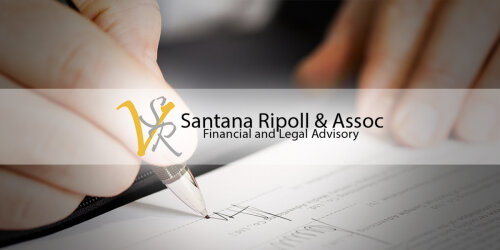Best Structured Finance Lawyers in Puerto Plata
Share your needs with us, get contacted by law firms.
Free. Takes 2 min.
List of the best lawyers in Puerto Plata, Dominican Republic
About Structured Finance Law in Puerto Plata, Dominican Republic
Structured finance refers to complex financial instruments and transactions, often involving the pooling and repackaging of assets into securities for investors. In Puerto Plata, Dominican Republic, structured finance plays a key role in supporting large-scale investments, real estate developments, tourism infrastructure, and government projects. The local legal framework is influenced by Dominican Republic’s commercial and financial laws while also adhering to international standards to attract foreign investment and ensure transparency in financial dealings.
Why You May Need a Lawyer
People and businesses involved in structured finance may encounter numerous legal challenges. Some common situations where legal help is essential include:
- Negotiating and drafting complex financial agreements or debt structures
- Structuring asset-backed securities, mortgage-backed securities, or other securitizations
- Due diligence for cross-border investment projects or syndicate loans
- Ensuring compliance with local and international financial regulations
- Managing legal risks in real estate developments or large infrastructure projects
- Resolving disputes regarding breaches of finance agreements or securities transactions
- Tax planning and mitigation strategies for complex financing arrangements
A qualified lawyer provides guidance to prevent costly errors, navigate regulatory requirements, and protect your interests in sophisticated financial transactions.
Local Laws Overview
Structured finance in Puerto Plata operates within the larger legal framework of the Dominican Republic. Some key aspects of local law particularly relevant to structured finance include:
- Securities Market Law: Overseen by the Superintendencia del Mercado de Valores, this law governs the issuance, trading, and regulation of securities in the Dominican Republic, ensuring investor protection and market transparency.
- Banking and Financial Institutions Law: Set forth by the Monetary and Financial Law No. 183-02, these regulations cover credit operations, lending limits, and requirements for local and foreign institutions engaging in financial activities.
- Taxation: Specific tax rules apply to financial transactions, capital gains, and income generated from structured finance products, which can affect the structure and profitability of deals.
- Foreign Investment Law: The Foreign Investment Law No. 16-95 ensures equitable treatment to foreign investors, streamlining the process of investing and repatriating profits.
- Bankruptcy and Insolvency: The Insolvency Law (Ley No. 141-15) affects how secured assets and collateral are handled if a party defaults in complex financing transactions.
Local customs, real estate regulations, and contract law in Puerto Plata may also affect how structured finance deals are planned and executed, making it crucial to have knowledgeable legal guidance.
Frequently Asked Questions
What is structured finance, and how does it work in Puerto Plata?
Structured finance involves using complex legal and financial arrangements to pool and redistribute financial risk. In Puerto Plata, it often supports large projects like resort development, commercial real estate, and infrastructure improvements by attracting external investors through structured products.
Which types of entities can participate in structured finance deals?
Banks, financial institutions, investment funds, developers, and sometimes government bodies can engage in structured finance transactions in Puerto Plata, subject to regulatory approval and compliance with local laws.
What are the common structured finance instruments used?
Typical instruments include asset-backed securities, syndicated loans, collateralized debt obligations (CDOs), and project finance arrangements tailored for real estate or infrastructure projects.
Are there restrictions on foreign investors participating in structured finance in Puerto Plata?
Foreign investors are generally allowed to participate under Dominican Republic’s Foreign Investment Law, provided they adhere to regulatory requirements, reporting, and due diligence obligations.
How are structured finance transactions taxed?
Taxation depends on the specific structure and assets involved. Taxes may be applied to interest income, capital gains, or dividends, and may vary depending on whether the investor is local or foreign. Professional advice is recommended to navigate these complexities.
What regulatory approvals are needed for a structured finance transaction?
Depending on the transaction type, approvals may be required from the Superintendencia del Mercado de Valores, the Monetary Board, and sometimes local municipal authorities, particularly for large real estate or infrastructure projects.
How can risks be minimized in structured finance agreements?
Comprehensive due diligence, clear contract drafting, proper risk assessment, and ongoing legal compliance with local and international regulations are essential steps to reduce risks.
What happens if there is a default in a structured finance transaction?
The procedure depends on the terms of the agreement and the applicable laws, including the Insolvency Law. Remedies may include foreclosure on collateral assets, debt restructuring, or court proceedings.
How important is due diligence in structured finance deals?
Due diligence is crucial to assess the value, risks, and regulatory compliance of the underlying assets and counterparties, and to identify potential legal issues before they arise.
How do I find a qualified lawyer for structured finance in Puerto Plata?
Seek attorneys who specialize in finance, real estate, and commercial law, preferably with international experience and a deep understanding of both Dominican and cross-border regulations.
Additional Resources
If you need more information or assistance regarding structured finance in Puerto Plata, these resources may be helpful:
- Superintendencia del Mercado de Valores (SIV) - Regulatory body overseeing the securities market
- Central Bank of the Dominican Republic (Banco Central) - Financial regulations and monetary policy
- General Directorate of Internal Revenue (DGII) - Taxation guidance on financial transactions
- Dominican Association of Companies of Commercial Banks (ABA) - Banking guidelines and professional contacts
- Professional legal associations in Puerto Plata and the Dominican Republic
Next Steps
If you believe you need legal advice or representation in structured finance matters in Puerto Plata, here are the steps you can take:
- Identify and contact law firms or attorneys specializing in structured finance and related fields
- Prepare a summary of your project or transaction, including key documents and objectives
- Request an initial consultation to discuss your legal needs and evaluate your options
- Ensure that your legal advisor is familiar with both local Puerto Plata practices and Dominican national regulations
- Stay proactive in addressing legal concerns, including compliance, due diligence, and risk mitigation, throughout your transaction
Seeking experienced legal guidance will help you navigate the complexities of structured finance in Puerto Plata, safeguarding your investments and business interests.
Lawzana helps you find the best lawyers and law firms in Puerto Plata through a curated and pre-screened list of qualified legal professionals. Our platform offers rankings and detailed profiles of attorneys and law firms, allowing you to compare based on practice areas, including Structured Finance, experience, and client feedback.
Each profile includes a description of the firm's areas of practice, client reviews, team members and partners, year of establishment, spoken languages, office locations, contact information, social media presence, and any published articles or resources. Most firms on our platform speak English and are experienced in both local and international legal matters.
Get a quote from top-rated law firms in Puerto Plata, Dominican Republic — quickly, securely, and without unnecessary hassle.
Disclaimer:
The information provided on this page is for general informational purposes only and does not constitute legal advice. While we strive to ensure the accuracy and relevance of the content, legal information may change over time, and interpretations of the law can vary. You should always consult with a qualified legal professional for advice specific to your situation.
We disclaim all liability for actions taken or not taken based on the content of this page. If you believe any information is incorrect or outdated, please contact us, and we will review and update it where appropriate.











